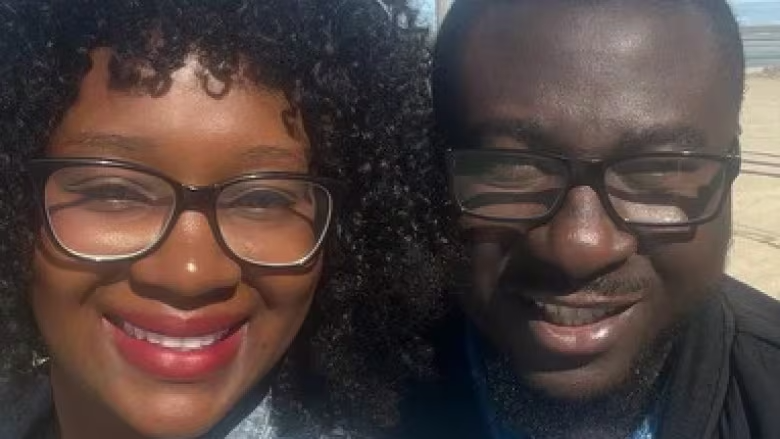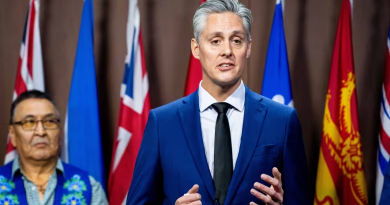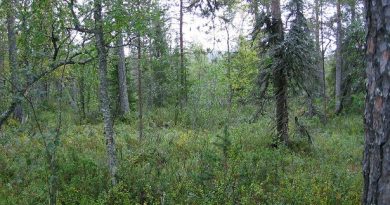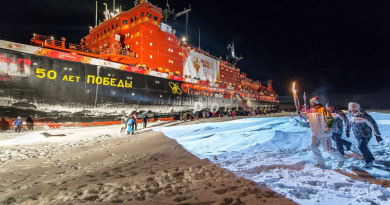Two would-be doctors want to volunteer at the Cambridge Bay health centre, but can’t

Couple did medical training at Dnipro State Medical University in Ukraine in 2018
Two foreign-trained medical professionals living in Cambridge Bay, Nunavut say the territorial government is preventing them from volunteering at the local health centre and gaining experience that would eventually lead them to work as doctors.
The situation is one many foreign-trained medical professionals face across the country, and it comes while both remote communities and large cities face a shortage of workers in the field.
James Ayodele has been living in Cambridge Bay for over two and a half years, and his partner Sibonginkosi Ayodele joined him there in 2022. Cambridge Bay is the administrative centre of the Kitikmeot region, the westernmost area of the territory. It has a population of just over 1,700.
No volunteer program available
The couple completed their medical training at Dnipro State Medical University in Ukraine in 2018.
James said he’s lived in Canada for about five years, first in the N.W.T., then in Edmonton, before moving to Cambridge Bay for a job in mental health. He said he likes the position, but is still interested in becoming a doctor and has begun working toward this.
The Medical Council of Canada, which grants a qualification in medicine, requires internationally-trained physicians to pass two medical licensing exams.
James has passed his first medical licensing exam, while Sibonginkosi has passed both of them.
They are also required to complete a residency program, which requires an application. The pair wanted to have some experience before applying and reached out to the Cambridge Bay Health Centre about working as clinical assistants or just being able to observe.

He said he knows employees at the health centre who said they would appreciate any extra support.
“Of course the front-line workers, they need all the help they can get,” James said. He had a full-time job, but was willing to give up one day a week to work unpaid at the health centre.
“But we got a flat out no.”
James said they were told there was no volunteer program available.
“Getting a no from the administration was shocking.… At some point I thought ‘well is the administration really working for the people or what’s going on here?'”
CBC News reached out to the Nunavut government for information about the situation and staffing at the Cambridge Bay Health Centre, but didn’t receive a response by deadline.
Practice-Ready
James said he feels conflicted when he hears about the shortage of medical professionals across the country considering how many people he knows who have the qualifications to work in the field — and the administrative hurdles that prevent them from doing so.
James said international medical graduates can help solve one of the biggest issues in the field.
“Rural medicine, which is where many of these doctors are coming from.… They’re comfortable, they’ve worked in rural areas, in rural settings all their lives,” he said.
This is something recognized by other provinces with a program called Practice-Ready Assessment.
It’s a 12-week clinical field assessment program that allows internationally-trained professionals to become qualified to practice in Canada. Upon completion, they need to work in a rural community in the province they completed the program.

Eight provinces participate in the program, but none of the three territories.
The program is only available for those who have completed their residency, which James and Sibonginkosi haven’t been able to do.
But B.C., which implemented Practice Ready, is also giving international medical graduates who aren’t eligible to be licensed in B.C. the opportunity to work in community-based primary care under the direction and supervision of a doctor.
Sibonginkosi said seeing these programs gives her hope for Nunavut.
“We have seen that other provinces nation-wide are really taking an initiative as far as incorporating doctors using other means,” she said.
“So my hope is that someday something will also be initiated in Nunavut…. It’s more than just the two of us, just in this community we’ve encountered another person who also has a similar background.”
A nation-wide issue
The federal government announced last Wednesday it will use Canada’s immigration system to recruit more in-demand health-care workers.
This is through a new dedicated “express entry” stream for health professionals in the economic immigration program.
Federal Immigration Minister Sean Fraser said that between 2017 and 2022, Canada welcomed around 21,000 health-care workers — a rate of just over 4,000 workers a year.
He said the goal now is to bring in around 8,000 new health-care workers a year.
The invitations will go to foreign doctors, nurses, dentists, pharmacists, physiotherapists and optometrists as part of a push by the federal government to deal with a health-care crisis that is, in large part, a staffing crisis.
Sibonginkosi said although she’s happy the federal government recognizes the need for foreign trained doctors, there are currently thousands already living in Canada trying to work in the field. And without policy changes in different jurisdictions, that number is just going to grow.
“Otherwise the 8,000 healthcare workers the government hope[s] to invite will suffer the same fate. We need more action for the available doctors in the country, who left their countries with the hope of advancing and serving the Canadians,” she said.
Related stories from around the North:
Canada: Quebec ups Nunavik nurse bonuses 20 per cent to help stem labour shortage, Eye on the Arctic
Greenland: Greenland to reduce services amidst staffing shortages in health care system, Eye on the Arctic



